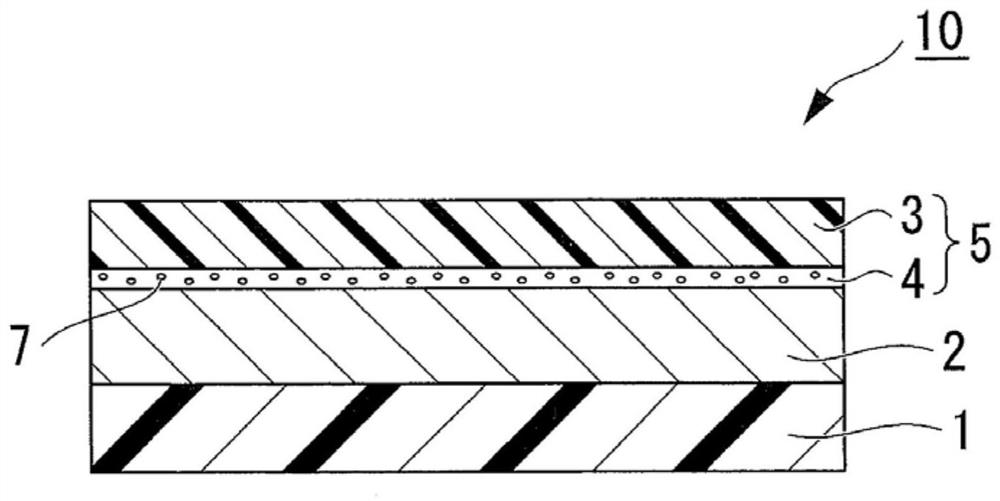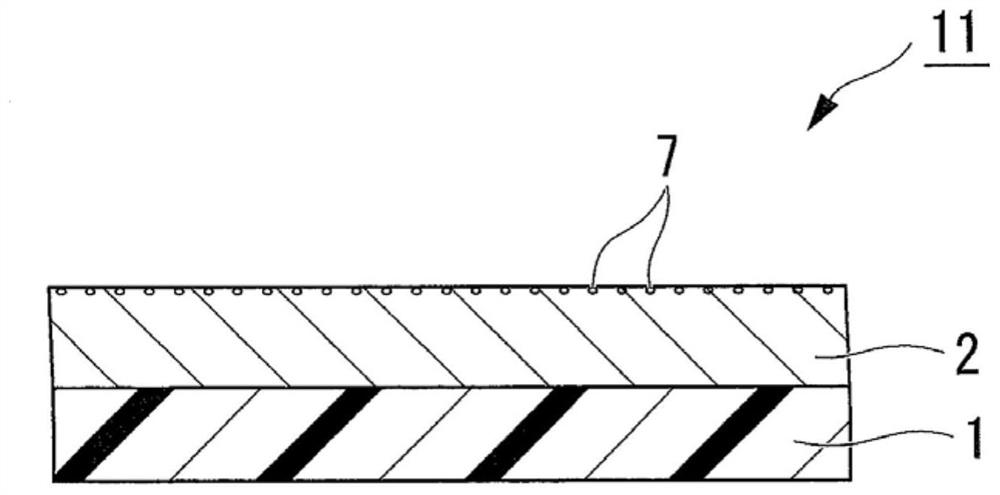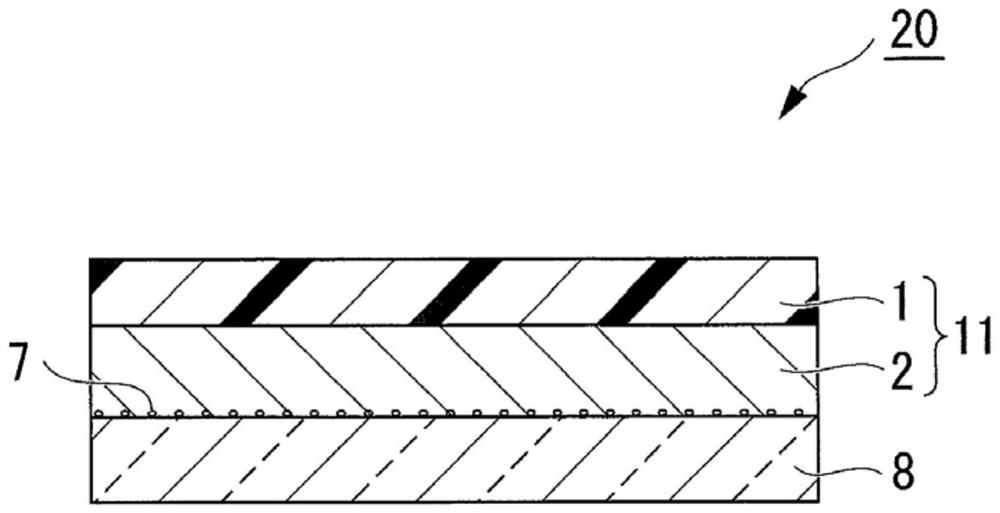Surface protection film and optical part bonded with the surface protection film
A surface protection film, peeling film technology, applied in the direction of optical elements, optics, film/sheet adhesives, etc., can solve the problem of difficult to stick FPR film and so on
- Summary
- Abstract
- Description
- Claims
- Application Information
AI Technical Summary
Problems solved by technology
Method used
Image
Examples
Embodiment 1
[0080] (Preparation of surface protection film)
[0081] 5 parts by weight of addition reaction silicone (manufactured by Dow Corning Toray Co., Ltd., trade name: SRX-345), 7.5 parts by weight of tri-n-butylmethylammonium bis( 10% ethyl acetate solution of trifluoromethanesulfonyl)imide (manufactured by 3M Company, FC-4400), 0.75 parts by weight of tetraethylene glycol di-2-ethylhexanoate, 95 parts by weight of toluene and acetic acid A mixed solvent of 1:1 ethyl ester and 0.05 parts by weight of a platinum catalyst (manufactured by Dow Corning Toray Co., Ltd., trade name: SRX-212) were mixed, stirred and mixed to prepare a release agent layer for forming Example 1 paint. On the surface of a polyethylene terephthalate film with a thickness of 38 μm, the paint used to form the release agent layer of Example 1 was coated with a Meyer bar so that the thickness after drying was 0.2 μm, and a 120° C. Dry in a hot air circulation oven for 1 minute to obtain the peeling film of Exa...
Embodiment 2
[0091] In addition to replacing the adhesive composition of Example 1, using 58 parts by weight of 2-ethylhexyl acrylate, 38 parts by weight of butyl acrylate, and 4 parts by weight of 2-hydroxyethyl acrylate A 30% ethyl acetate solution of an adhesive polymer composed of a copolymer of , and an adhesive composition obtained by adding and mixing 1.2 parts by weight of an isocyanate curing agent (manufactured by TOSOH CORPORATION, trade name: CORONATE (registered trademark) HX) In addition, similarly to Example 1, the surface protection film of Example 2 was obtained.
Embodiment 3
[0093] In addition to replacing the adhesive composition of Example 1, an adhesive polymer composed of a copolymer of 96 parts by weight of 2-ethylhexyl acrylate and 4 parts by weight of 2-hydroxyethyl acrylate was used relative to 100 parts by weight. 30% ethyl acetate solution, adding and mixing 1.2 parts by weight of an isocyanate curing agent (manufactured by TOSOH CORPORATION, trade name: CORONATE (registered trademark) HX) adhesive composition, the same as in Example 1 , Obtain the surface protection film of embodiment 3.
[0094] The method and results of the evaluation test are shown below.
[0095]
[0096] A sample of the surface protection film was cut into a width of 50 mm and a length of 150 mm. Under the test environment of 23°C×50%RH, use a tensile testing machine to measure the strength when peeling off the peeling film in the direction of 180° at a peeling speed of 300mm / min, and use this as the peeling force of the peeling film (N / 50mm ).
[0097]
[0...
PUM
| Property | Measurement | Unit |
|---|---|---|
| melting point | aaaaa | aaaaa |
| peel strength | aaaaa | aaaaa |
| peel strength | aaaaa | aaaaa |
Abstract
Description
Claims
Application Information
 Login to View More
Login to View More - R&D
- Intellectual Property
- Life Sciences
- Materials
- Tech Scout
- Unparalleled Data Quality
- Higher Quality Content
- 60% Fewer Hallucinations
Browse by: Latest US Patents, China's latest patents, Technical Efficacy Thesaurus, Application Domain, Technology Topic, Popular Technical Reports.
© 2025 PatSnap. All rights reserved.Legal|Privacy policy|Modern Slavery Act Transparency Statement|Sitemap|About US| Contact US: help@patsnap.com



